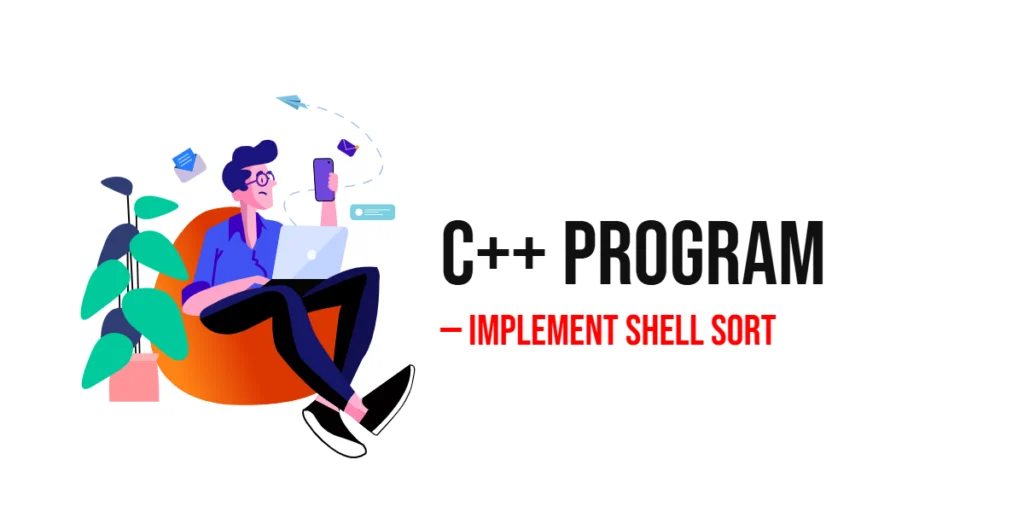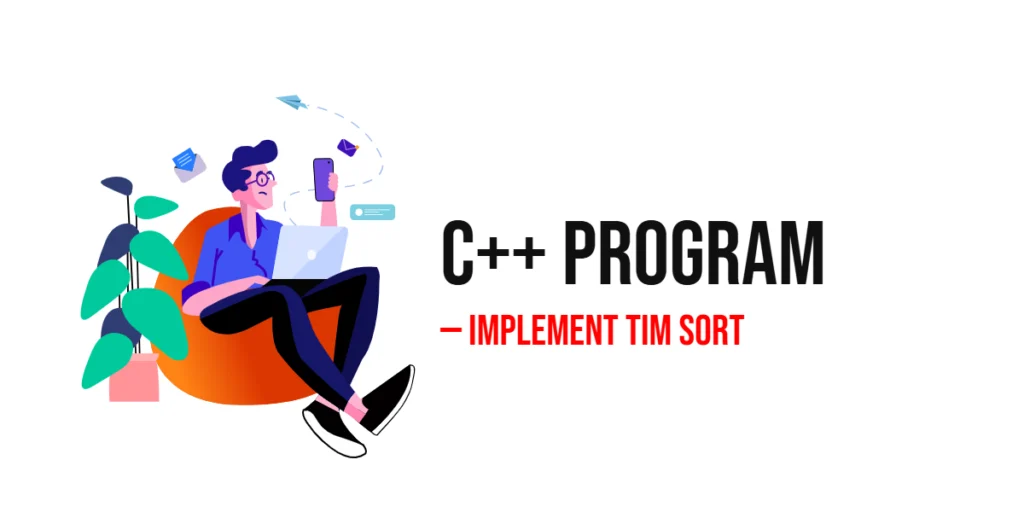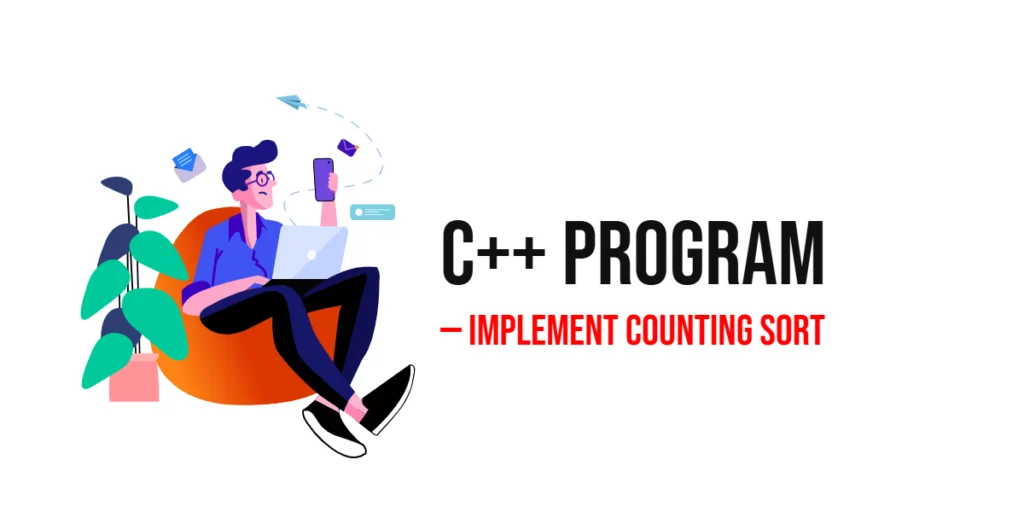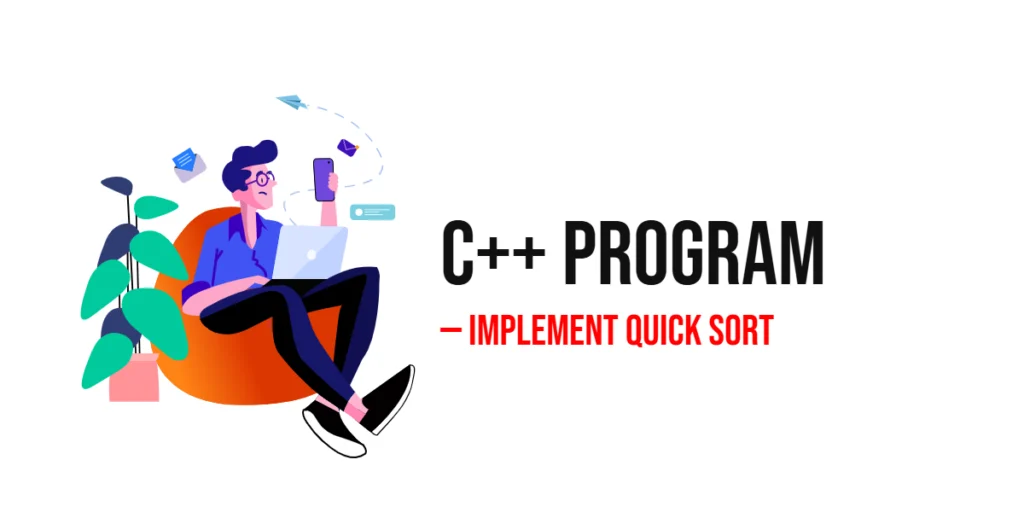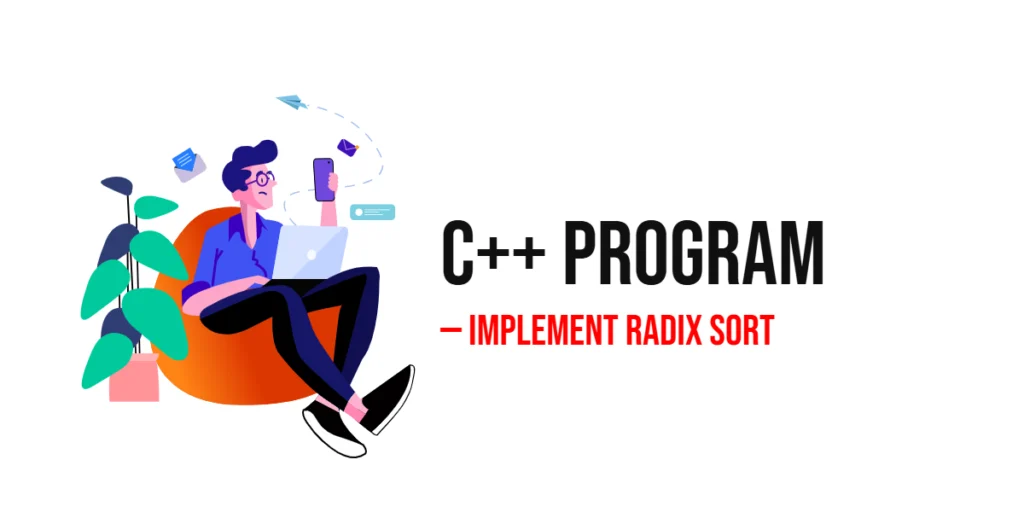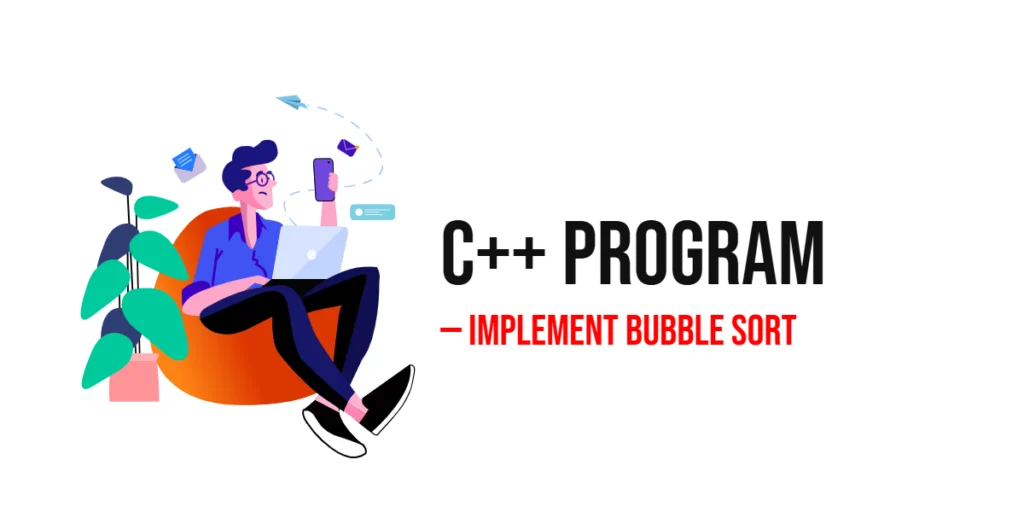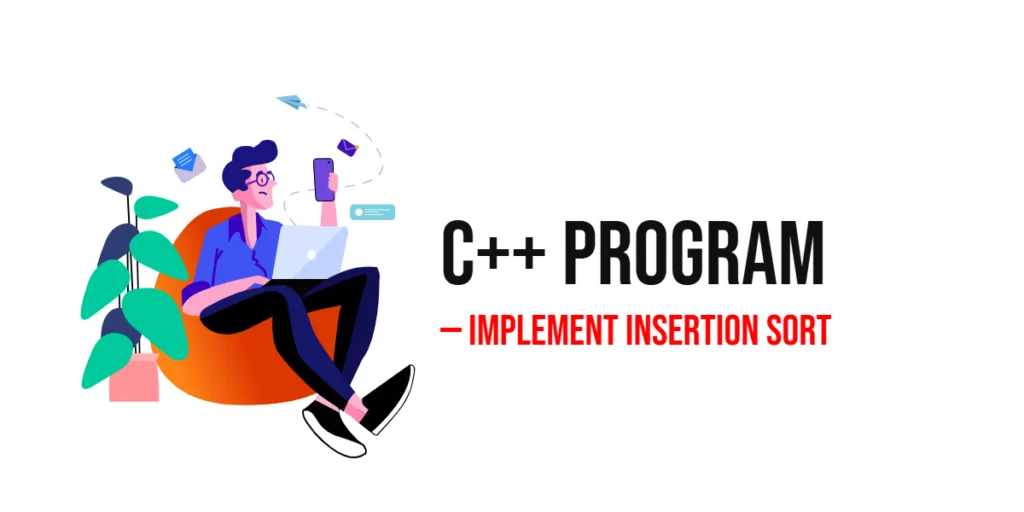C++ Program to Implement Shell Sort
Sorting is one of the most important topics in programming. Whenever you have a list of numbers, names, or scores, arranging them in order can make searching, analyzing, and understanding data much easier. One efficient sorting technique that often comes up in programming discussions is Shell Sort. Named after its inventor, Donald Shell, Shell Sort […]
C++ Program to Implement Shell Sort Read More »
